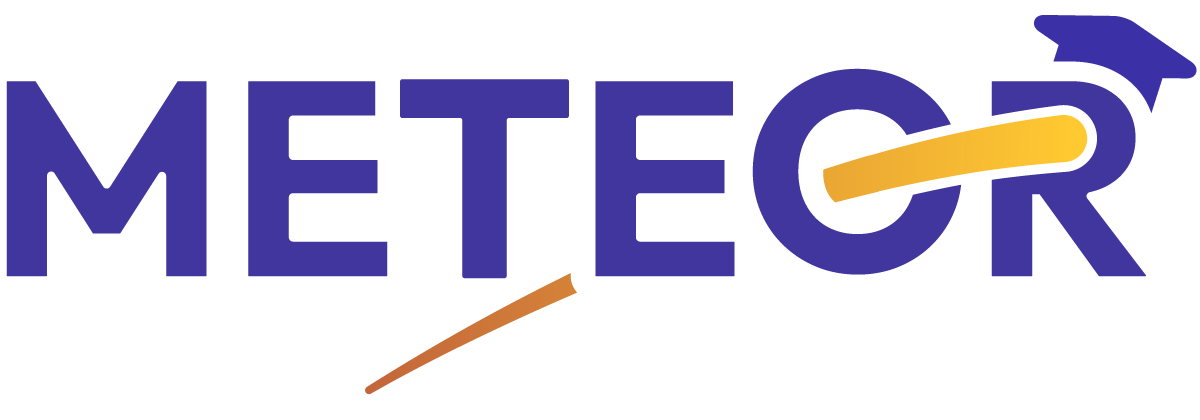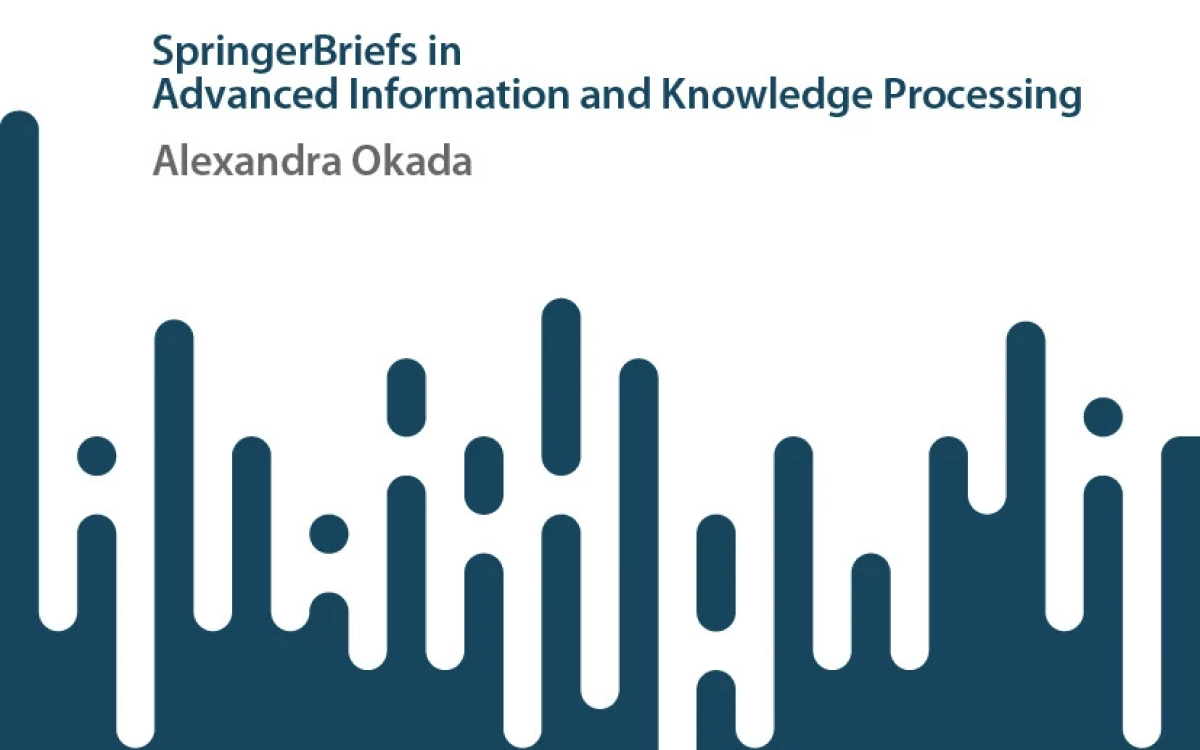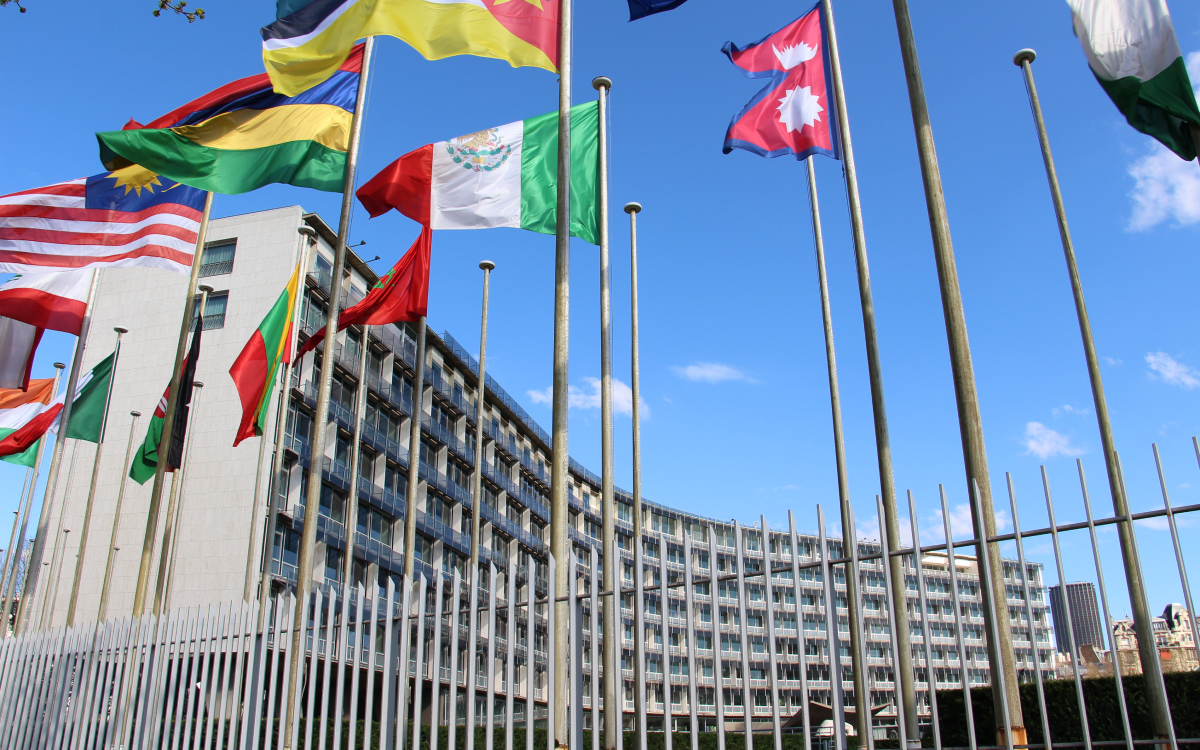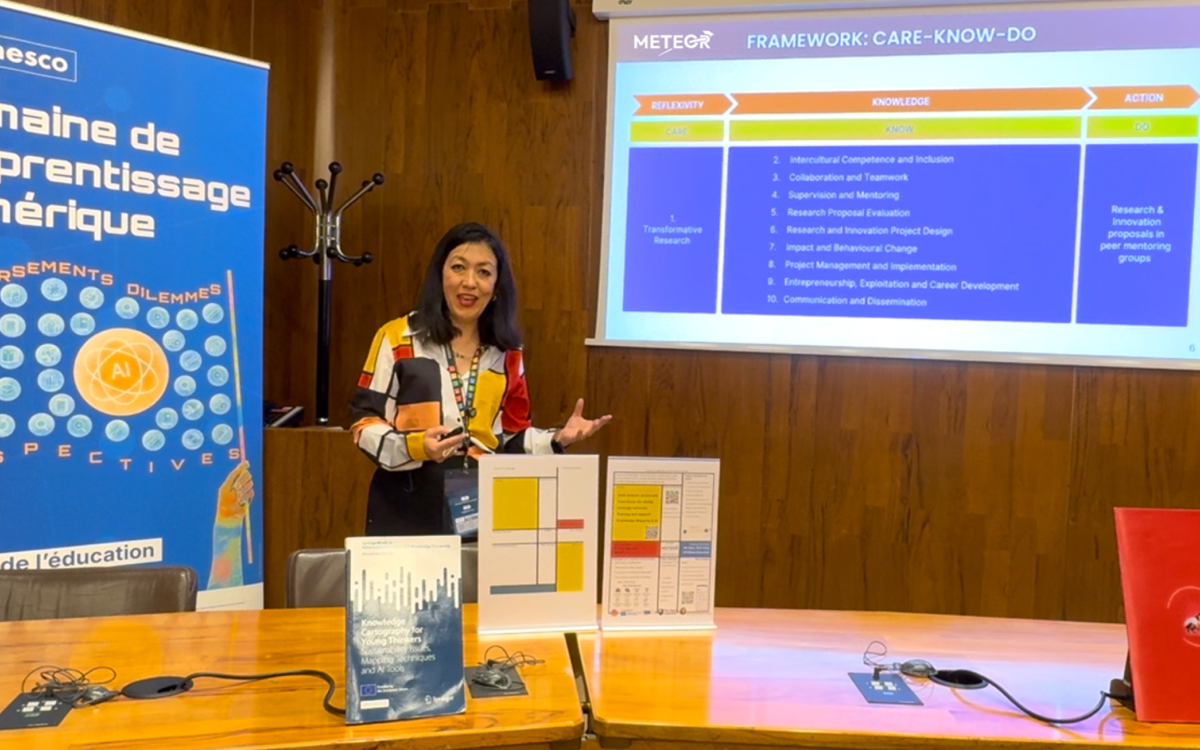
upSkill.Map: Enhancing Researchers’ Competencies with CARE–KNOW–DO
Researchers today face an environment that is more complex and demanding than ever before. Alongside the pursuit of disciplinary excellence, they are indispensable to society’s ability to respond to climate change, inequality, geopolitical challenges, and rapid technological innovation. Future-ready researchers therefore need to balance technical expertise with transversal skills—the ability to collaborate effectively, catalyse positive change, and connect across disciplinary and cultural boundaries—while keeping sustainability and justice at the core of their practice.
A number of key frameworks—such as the European Commission’s RMComp1,2, Vitae’s Researcher Development Framework3, and the OECD’s Core Competency Framework4—have made important contributions to defining sets of transversal skills. While these frameworks provide valuable guidance, there remains scope to place greater emphasis on sustainability, care, and equity, ensuring these elements are fully embedded in the heart of researcher development.
In response, the upSkill.Map4,5 instrument was developed. Unlike existing frameworks, it adopts an eco-outwards perspective, situating researcher growth in relation to interconnected systems—environment, society, culture, and knowledge ecosystems—while offering a structured way for researchers to reflect on their competencies and professional growth in a holistic, future-facing manner.
Image 1: CARE–KNOW–DO framework of the METEOR project, presented by Dr Okada at UNESCO
What is upSkill.Map?
upSkill.Map is an interactive self-assessment instrument that allows researchers to explore how they currently view and practise transversal skills. It was developed to encourage reflection not only on technical and professional abilities, but also on the personal and societal responsibilities attached to doing research in the 21st century.
The tool is structured around the CARE–KNOW–DO model, which invites researchers to think about:
- CARE – what values, ethics, and responsibilities guide their work;
- KNOW – how they deepen understanding, broaden perspectives, and use knowledge critically;
- DO – the actions they take to apply skills, innovate, and engage with society.
To operationalise this model, we drew on an 8C framework of competencies covering 28 distinct skills. Together, these capture the personal, professional, and planetary dimensions of a research career.
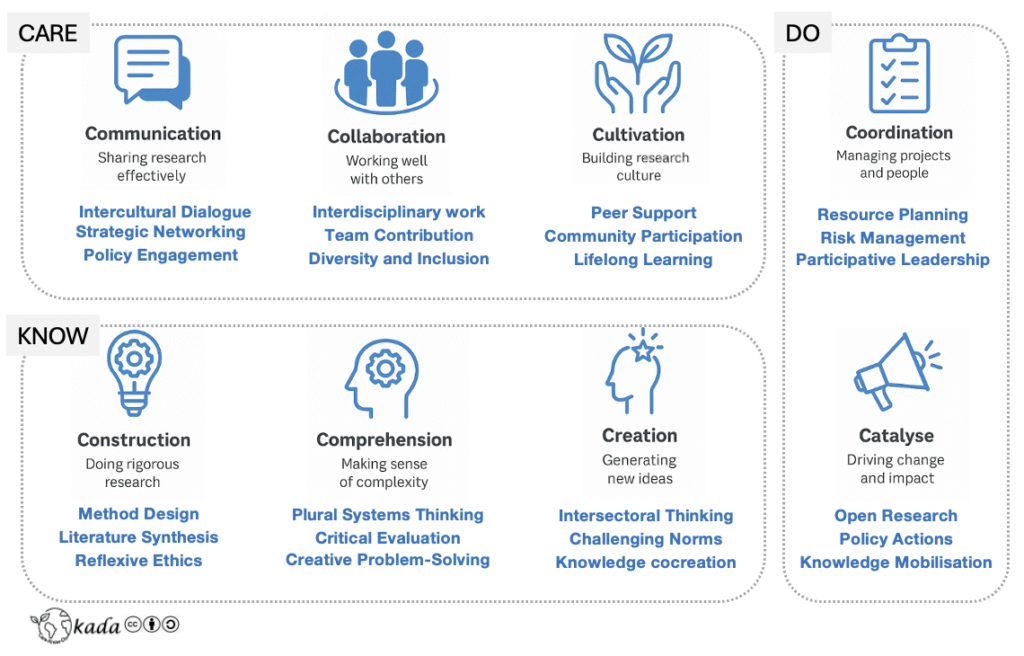
How it was developed
The instrument was co-designed with input from experts and researchers, and piloted through both quantitative and qualitative methods. To ensure reliability and robustness, the tool underwent psychometric validation, including factor analysis and reliability testing, which showed very strong internal consistency.
Equally important was feedback from participants. Forty researchers completed the assessment and shared insights into how they understood the competencies and how these related to their own development. This combination of data sources helped refine the instrument to make it both rigorous and user-friendly.
What we found
From researchers’ reflections, five broad areas of competence stood out.
The first relates to how researchers connect their work to wider responsibilities. It is not only about producing sound knowledge but also about embedding ethics and sustainability into everyday practice and ensuring that findings can inform policy and decision-making.
The second area highlights the importance of working well with others. Researchers emphasised the need to lead collaboratively, communicate clearly, and create inclusive environments that value different voices and perspectives.
A third theme centres on navigating uncertainty and change. Participants saw creativity, flexibility, and adaptability as crucial qualities for researchers, enabling them to respond constructively when facing new challenges, shifting contexts, or unexpected results.
The fourth area concerns the ability to build bridges across boundaries. This includes reaching beyond one’s own discipline, using a range of methods, and connecting with different communities to create knowledge that is richer and more comprehensive.
Finally, the fifth theme relates to making research matter in society while supporting resilience and growth. Researchers valued not only generating impact but also ensuring that their work helps build capacity—both within their own careers and in the wider research ecosystem.
Together, these areas show that researchers volunteers who joined this study are motivated by more than technical skill. They see value in aligning research with responsibility, inclusiveness, creativity, collaboration, and social purpose.
Researchers placed the highest importance on resilience, collaboration, and capacity building, showing a strong commitment to working together and navigating the challenges of modern research life. At the same time, the study highlighted gaps in institutional support: many participants reported limited encouragement for interdisciplinary work, insufficient recognition of responsible research practices, and a lack of structured training to translate research into impact.
A key limitation was the small number of respondents (n = 40 of ~500 invited). Initial recruitment through the Open University’s doctoral programme yielded just 10 participants (<2%), with a further 30 recruited voluntarily via purposive and snowball sampling across four programmes. This low participation suggests that eco-outwards professional development currently attracts relatively few researchers.
Nevertheless, the instrument’s design ensured robustness: qualitative analysis enriched the quantitative results, the think-piece activity minimised bias in self-reports, and the diversity of participants’ backgrounds contributed to a broadly representative dataset.
These findings point to an opportunity: institutions can begin raising awareness and fostering engagement even with small numbers. By collaborating as an alliance, they can build a critical mass of researchers committed to shaping professional development programmes that balance local specificities with shared practices, promoting responsible, socially meaningful, and sustainable research. Reflective tools like upSkill.Map offer practical ways for researchers to explore competencies and contribute to this evolving eco-outwards research culture.
What this means for researcher development
The results from upSkill.Map suggest both optimism and urgency. Researchers are motivated to embrace competencies aligned with responsibility, justice, and sustainability. However, without stronger institutional frameworks, their ability to do so is constrained.
The CARE–KNOW–DO approach helps shift the conversation from “lists of skills” to a developmental journey that links values, knowledge, and practice. By positioning care and justice as integral—not optional—components of researcher development, the framework offers a way to cultivate more resilient, ethical, and socially engaged research cultures.
This aligns closely with European Union priorities, particularly Horizon Europe’s emphasis on responsible research and innovation (RRI), as well as with UNESCO’s Education for Sustainable Development agenda, which calls for education and research that equip people to shape fairer and more sustainable futures.
Moving forward
upSkill.Map can be used in several ways:
- For individual researchers, it offers a reflective space to consider personal strengths, growth areas, and alignment with societal challenges.
- For doctoral training and early career programs, it provides evidence-based insights into the kinds of competencies that need more structured support.
- For institutions and policymakers, it offers a scalable mechanism to monitor and strengthen researcher development strategies in ways that align with global sustainability priorities.
As part of our commitment to open science, we are sharing these findings not only through academic publication but also through this knowledge article. Our aim is to inform those who participated in the study, and also to open up a wider conversation as well invitation for an expression of interest in participating in the METEOR research professional development programme with non-formal activities.
Invitation to reflect
We see upSkill.Map as more than an assessment—it is a catalyst for dialogue. We encourage researchers, supervisors, and institutions to use it as a way of reflecting together on how research can be both excellent and socially transformative.
Some questions you might ask yourself include:
- Which CARE–KNOW–DO dimensions do I currently emphasise most in my research?
- Where do I feel strongest, and where do I want to grow further?
- How does my institution support—or hold back—my ability to work responsibly, collaboratively, and with impact?
- What could be done differently to align researcher development with sustainability and justice?
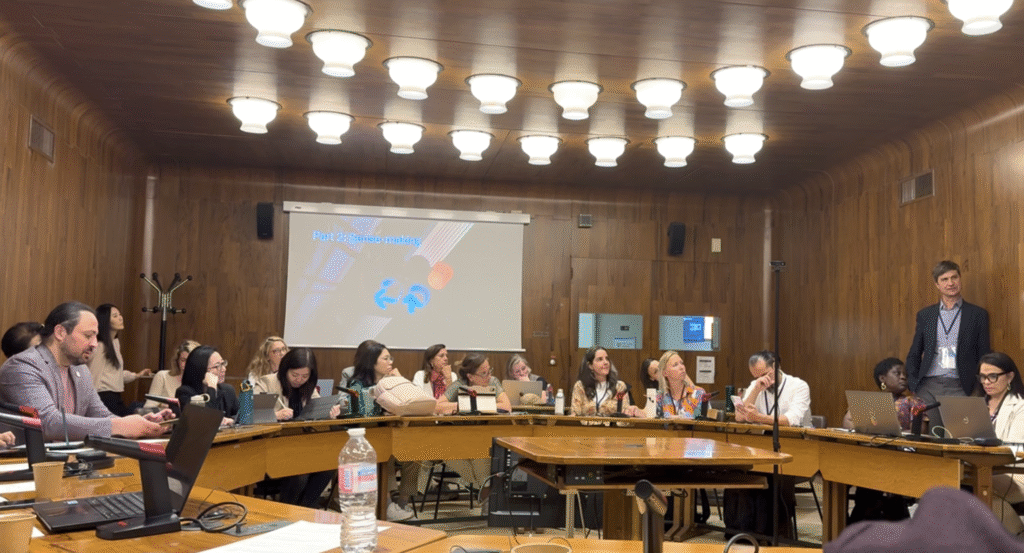
By engaging with these reflections, the community can move towards research ecosystems that not only advance knowledge but also help build fairer, more sustainable, and more resilient societies.
Acknowledgements
We thank all participating researchers, instrument advisors, METEOR reviewers and the OU Postgraduate Research Directors.
References
- European Commission, European Competence Framework for Research Managers,RM Comp: The European Competence Framework for Research Managers – European Commission
- CARDEA, Defining a European Competence Framework for Research Managers,324375ef-e3f8-4905-bea6-4cc734b08e16_en
- (2025). Vitae Researcher Development Framework: Reviewing for systemic change. https://vitae.ac.uk/vitae-researcher-development-framework/
- (2019). Global competency frameworks. OECD Publishing. https://www.oecd.org/about/careers/apply/core-competency-framework.html
- Okada A.(2025, under review) upSkill.Map In: Making sense of signals: The implications of AI for the future of education (UNESCO, Sep 2025).
- Okada et al. (2025, under review) Developing Researchers’ Competencies through CARE–KNOW–DO and upSkill.Map, aligned with EU and UNESCO Priorities.
LINKS presented at UNESCO Digital Learning week: AI and the Future of Education
- Okada, A. & Vaz, G. (2025). Rethinking AI in Research with Ancestral Wisdom for Future Generations. UNESCO – Futures of Education. [LINK]
- Okada, A; Sherborne, T; Panselinas, G; Kolionis, G (2025). Fostering Transversal Skills through Open Schooling supported by the CARE-KNOW-DO Pedagogical Model and the UNESCO AI Competencies Framework. International Journal of Artificial Intelligence in Education. Springer [LINK]
- Okada, Alexandra (2025). Knowledge Cartography for Young Thinkers: Sustainability Issues, Mapping Techniques and AI Tools. Advanced Information and Knowledge Processing. Switzerland: Springer. [LINK]
LINKS presented at UN General Assembly and NYC Climate Week
- Okada, A. & Sherborne, T. (2025). Building Science and Technology Diplomacy Skills through CARE–KNOW–DO. OpenLearn. [LINK]
- Okada, A., Doka, J., Glover, A., & Ebubedike, M. (2025). Challenging Gender Discrimination in Academia: A Call for Inclusive Change. OpenLearn. [LINK]
- Okada, A. (2025). CARE-KNOW-DO for Social and Emotional Learning: building children’s resilience and agency in crisis settings [Link]
Join METEOR on social media to stay connected for upcoming workshops and collaborative sessions across Europe. Engage online through our digital platform and social media channels for continuous updates and networking.
Author: Dr. Alexandra Okada
Keywords: upskill; 8C research competencies; CARE-KNOW-DO; METEOR, Open University, United Kingdom, Global Education, Digital Transformation
